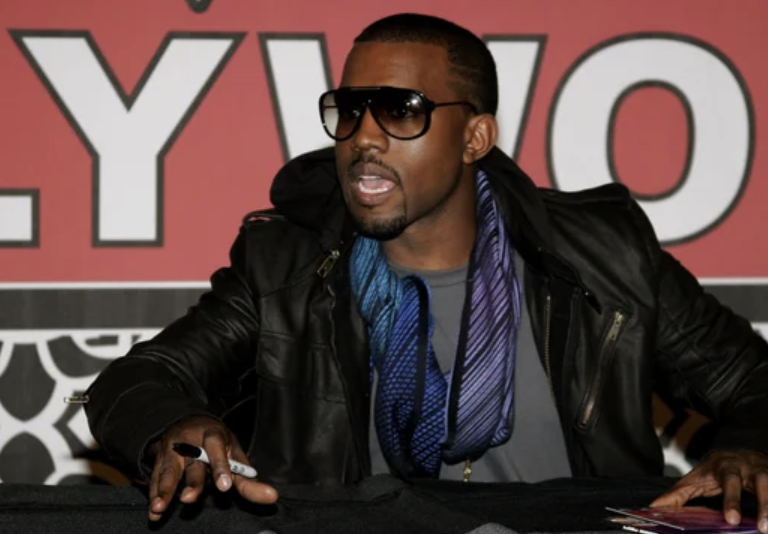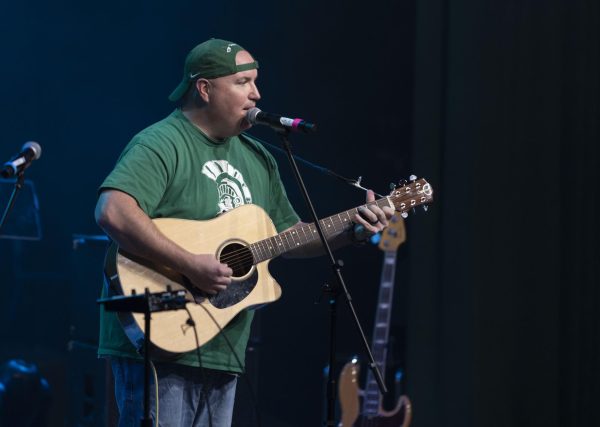Can Kanye make teens care more about Christianity?
According to a study from the Pew Research Center in 2020, 32% of teens identify as religiously unaffiliated. Just four percent fewer than those that identify as Protestant, at 36%. Without a doubt, the importance of religion in a teen’s life, as well as in American culture, has dwindled since the mid-twentieth century when America was widely considered a Christian nation.
Conversely, the popularity of Hip-Hop and Rap music has risen in a seemingly direct correlation with the decline of Christianity.
“I believe Drake is more popular [than Jesus]” said Parker Phillips, a Kelly Walsh senior.
Many adults across the country see this as a problem. They are concerned that today’s broadly Atheist or unaffiliated youth are being exposed to the sexist, violent, and foul language of Rap music instead of the moral, loving, and positive language contained in the Bible. There’s an exception to the rule, though: Kanye West.
Kanye West’s influence and popularity among high school students cannot be questioned. Not only is he one of the most listened to music artists of all-time, but Kanye’s Yeezy line and other fashion collaborations are also considered sought after “grails” by youth nationwide. Additionally, his contributions to culture at large are notable, including but not limited to his popularization of baggy clothing. Kanye has repeatedly shown an almost God-like ability to speak things into the forefront of culture. But can he do the same with Christianity?
Despite being a figurehead of the Rap genre, Kanye does not necessarily operate in the same confines as most popular rappers. Kanye’s music often samples soul and gospel music in his songs, as well as having frequent biblical allusions and Christian phrases in his lyrics. This has been evident in his music as far back as the 2004 single “Jesus Walks”, but became more prevalent on 2016’s “Life of Pablo” which featured songs such as “Father Stretch my Hands Pt. 2” and “Ultralight Beam”. These have gone on to become a couple of Kanye’s most successful singles with the former currently being his number one hit on Apple Music.
The Christian presence in Kanye’s music was ramped up further with the release of 2019’s “Jesus is King”. The rollout of this 11-track sermon was preceded by multiple events called “Sunday Service”, which were essentially gospel-driven sing-alongs intended to celebrate God. One of these Sunday Services was even held in Cody, Wyoming and attended by multiple Kelly Walsh students.
“I’m spiritual but not religious. I’ve been listening to Kanye since I had a 5th generation iPod classic… The Sunday Service was uplifting and truly one of my most memorable experiences” said Ari Burback, Kelly Walsh senior who attended the event in Cody.
Clearly Kanye’s magnetism among his faithful transcends religious barriers. Fans who aren’t even Christians are willing to travel to listen to the man preach.
So Kanye has already evinced an ability to draw high-schoolers to Christian events, but will this actually lead to an increase in the role of religion in modern life? “As someone who enjoys Kanye West’s music, I emotionally connect with him on the music level, and something about that creates a Jesus connection within me” said Lucas Rowe, a senior at Kelly Walsh. Kanye can not only pack the house with high-schoolers, but also make them reconsider their very beliefs about religion.
Whether or not Kanye’s influence will lead to a substantive increase in Protestant participation, only time will tell. But for now, Kanye has opened Gen-Z’s mind to transcendent sounds and futuristic fashion. He may have them opening their Bibles soon.








